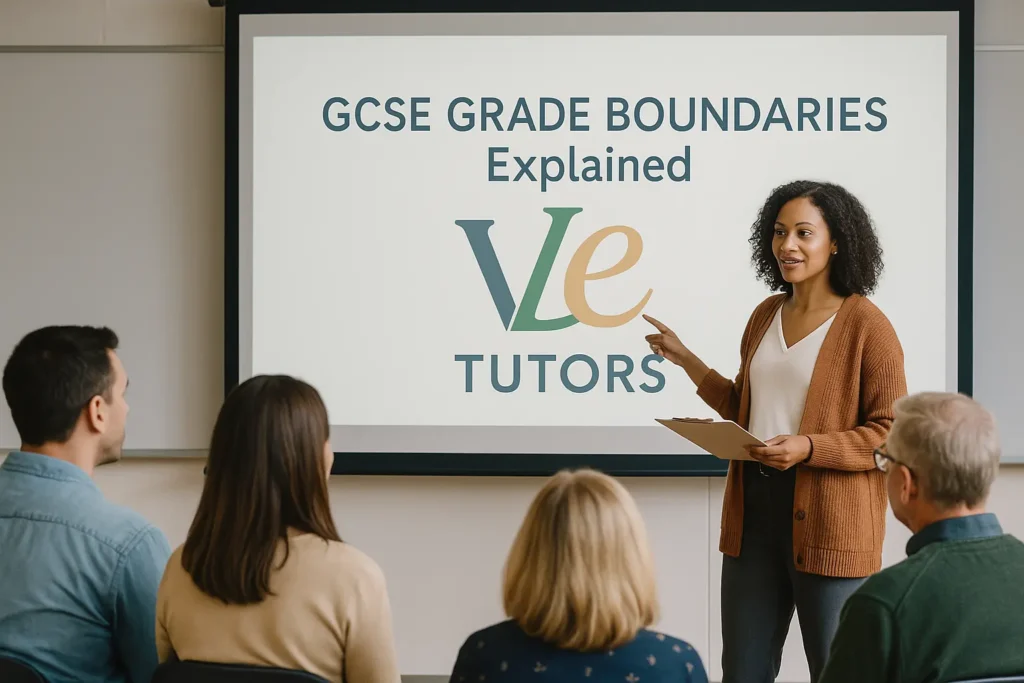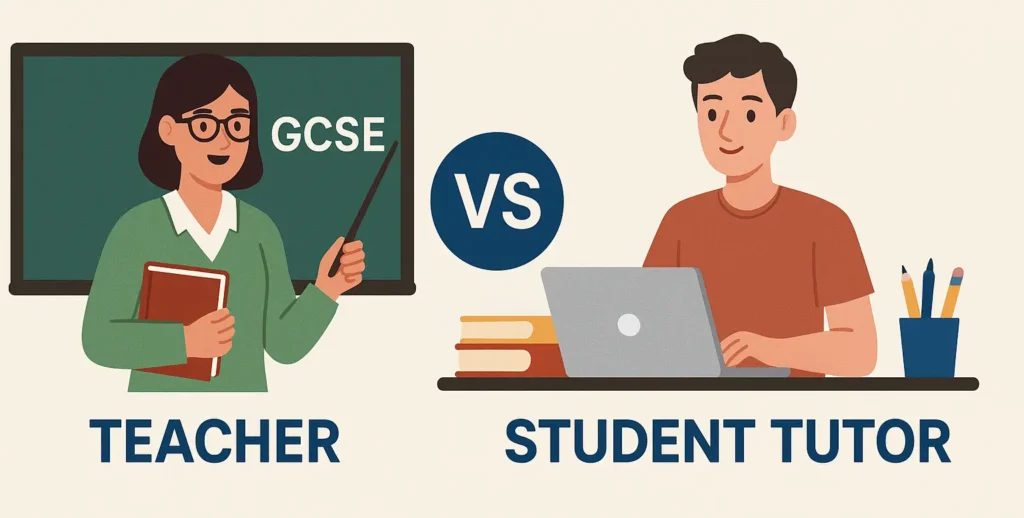GCSE Grade Boundaries 2024 Explained | Maths & English Guide – VLE Tutors
GCSE Grade Boundaries Explained Understand how boundaries work for Maths & English, see 2024 examples, and learn why target grades aren’t limits. 👇 See Grade Boundaries GCSE grade boundaries 2024 determine the minimum marks needed for each grade — from 9 to 1. They change every year depending on how hard the paper was. In this guide, we explain how they work for Maths and English, with real examples and tips for parents. GCSE Grade Boundaries Explained GCSE grade boundaries are the minimum marks students need for each grade (1–9) in subjects like Maths and English. They change yearly—here’s how they work, with 2024 examples from VLE Tutors. 🔑 Key Takeaways: Grade 4 = pass, Grade 5 = “strong pass” (required for many colleges). English boundaries are typically 10–15% lower than Maths. Target grades from schools are predictions, not limits. 🔍 What Are GCSE Grade Boundaries? They’re the minimum marks required to achieve each grade (9 to 1). Unlike fixed exam scores, boundaries adjust yearly to reflect paper difficulty. Example: If an English exam is hard, the boundary for a Grade 7 might drop to 55% instead of 60%. Each exam board (AQA, Edexcel, OCR) sets its own boundaries. 📊 AQA GCSE Maths Grade Boundaries (2024) Grade Mark (out of 240) Percentage 9 202 84% 8 184 77% 7 166 69% 📝 AQA GCSE English Language (2024) Grade Mark (out of 160) Percentage 9 128 80% 8 112 70% 7 96 60% Note: English boundaries are lower because marking is more subjective. 🎯 Target Grades vs. GCSE Grades Schools set target grades to guide student progress, often based on previous data like Year 6 SATs or CAT scores. These are not the same as the final GCSE grade a student receives after sitting their exams. Here’s how they differ: Target Grade Actual GCSE Grade Based on past performance (e.g., Year 6 SATs, CAT scores) Based on final exam marks Varies by school Standardised nationally Used for tracking and internal progress reports Used officially for qualifications and results 💡 Pro Tip: Many students exceed their target grades in English and Maths by mastering exam techniques, time management, and question strategy. ❓ GCSE Grade Boundaries: Frequently Asked Questions ➕ What’s the difference between raw marks and uniform marks? Raw marks are your actual exam scores (e.g., 65/100), while uniform marks adjust these scores to account for varying exam difficulty across years. Exam boards use uniform marks when setting grade boundaries to ensure fairness. ➕ Why are English grade boundaries lower than Maths? English boundaries are typically 10-15% lower because: Marking is more subjective (essay-based) Papers are designed to be more challenging to differentiate top grades Grade 9 in English often requires ~75% vs ~85% in Maths ➕ Can grade boundaries change after results day? No – boundaries are fixed once published. However, in rare cases (e.g., exam errors), boards may adjust all students’ marks, which could indirectly affect boundaries. ➕ How many marks do I need to pass GCSE English? For AQA GCSE English Language (2024): Grade Approx % Needed 4 (Pass) 50–55% 5 (Strong Pass) 60–65% Note: Boundaries change yearly – use these as rough guides only. ➕ What if I miss my grade boundary by 1–2 marks? You can: Request a remark (if close to the boundary) Resit the exam (November for English/Maths) Appeal if there were special circumstances Our GCSE English tutors and Maths tutors specialize in helping students gain those crucial extra marks. 📢 Need Help with GCSE English or Maths? Our specialist tutors help students boost grades by 1-2 levels. Book a free session today! 👩🏫 GCSE English Help 🧮 GCSE Maths Help
GCSE Grade Boundaries 2024 Explained | Maths & English Guide – VLE Tutors Read More »






